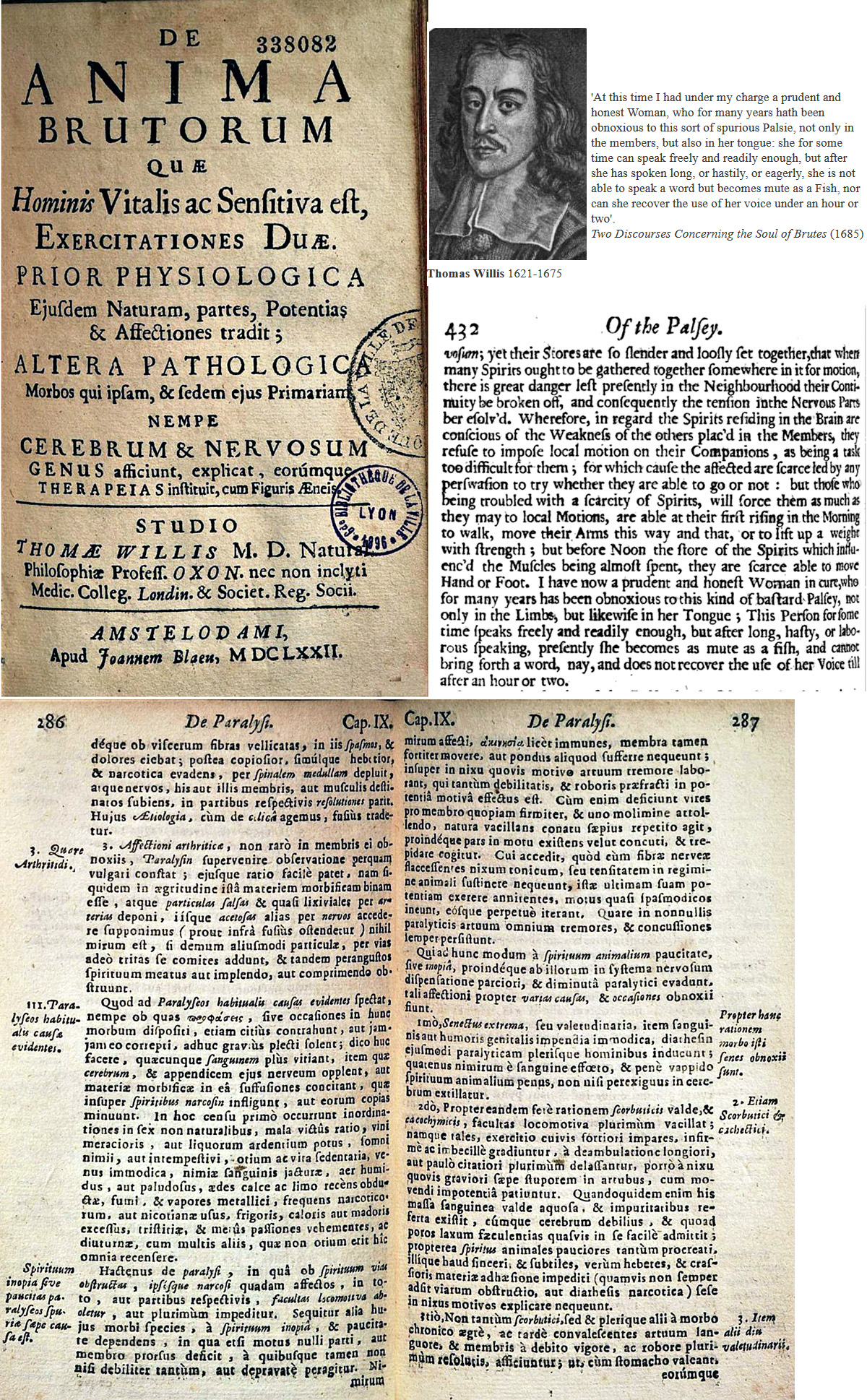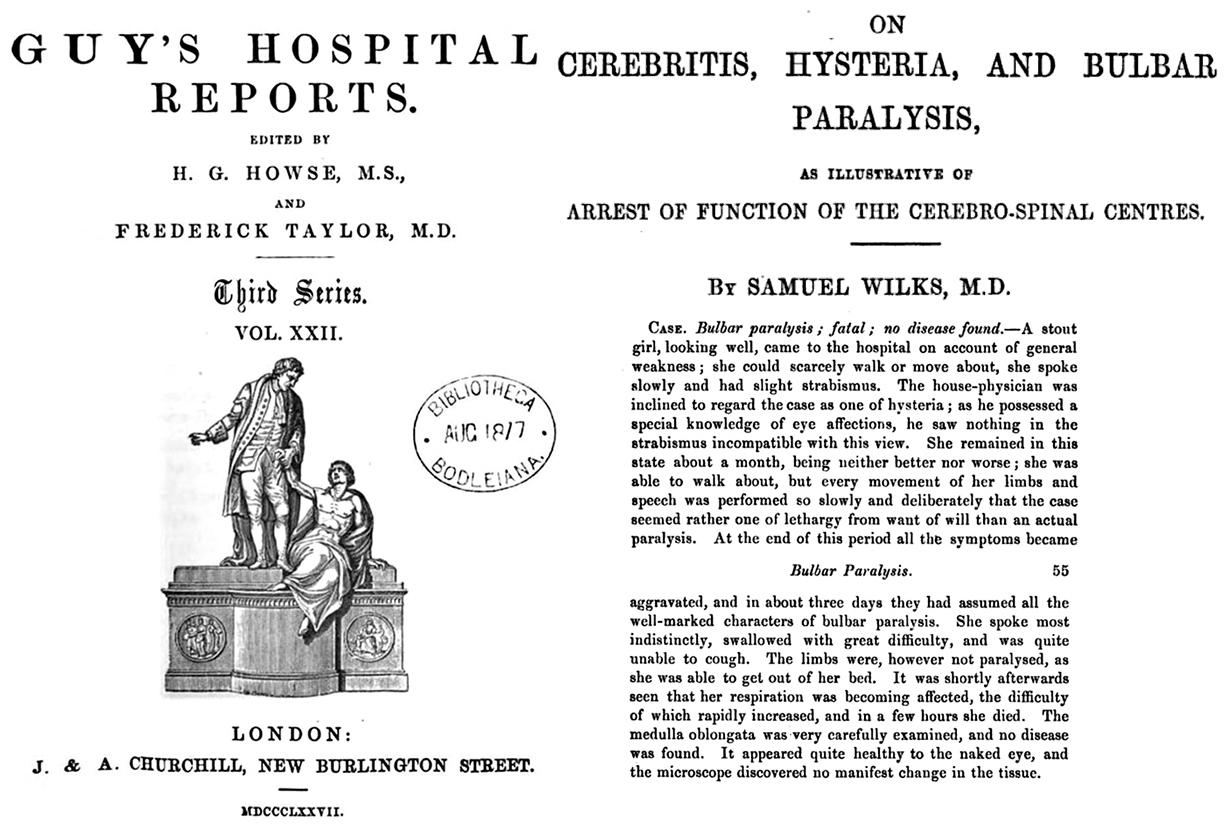 P. S., aet. thirty-seven, a baker, applied for treatment at the
out-patient department at the Victoria Park Hospital, on Friday,
February 11th, 1887. From statements he then made, and from
facts obtained from his widow on a subsequent occasion, the
history of the case is briefly as follows :
P. S., aet. thirty-seven, a baker, applied for treatment at the
out-patient department at the Victoria Park Hospital, on Friday,
February 11th, 1887. From statements he then made, and from
facts obtained from his widow on a subsequent occasion, the
history of the case is briefly as follows :
He was a married man with seven healthy children. He had
always followed his present occupation, that of a baker; he had
never suffered from any venereal complaint, and had enjoyed
perfect health until his present illness began, six months ago. At
that time he was kept from his work by a very severe attack of
diarrhoea, which lasted a fortnight, but did not necessitate his
staying in bed. Ever since this attack he had suffered from an
ill-defined feeling of weakness, becoming gradually more severe,
but with occasional remissions. This progressive weakness had
been noticed more in the arms than in the legs, and had quite
early in the illness been observed in the act of mastication.
Throughout there had been wasting of the body generally, and at
no time had the patient been well enough to resume his work.
During the last month the weakness had been much more
marked, and it was within this time that the symptoms had been
noticed which led him to seek advice at the hospital.
There had been difficulty of articulation, so that the patient
could not make himself clearly understood. At the same time he
had found trouble in deglutition-a trouble that was more marked
with solid than with liquid food. These symptoms were but
slight in the morning, but became more evident as the day
advanced. There had been copious secretion of frothy mucus,
which he found very difficult to spit out, and which he feared
sometimes would choke him. Within the last fortnight he had
two severe attacks of shortness of breath, which gave great alarm
to his friends.
He walked into the out-patient room assisted by a friend and
required help in undressing. He could however stand and walk
a little unaided, but said that he often fell, and was quite unable
to walk downstairs alone. When sitting he could not cross one
leg over the other without lifting it with his hands. He spoke
slowly and indistinctly, reminding one of a patient suffering front
tonsillitis. The special difficulty of articulation was not investigated
except that he had more difficulty in pronouncing hard
" c " than other consonants. There was no nasal twang to his
voice, and his soft palate was seen to move well and equally. His
mouth was constantly held slightly open, but there was no
dribbling of saliva, on the contrary what saliva and mucus
collected in the mouth was cleared away with the fingers after
futile attempts to expectorate it. There was loss of power in the
lower facial muscles, so that the naso-labial fold was obliterated
on either side, causing a vacant expression. He was unable to
whistle or blow out a light. The loss of power was quite equal
on the two sides, and did not affect the upper facial muscles at all,
the patient being able to screw his eyes up firmly. The only
evidence of any weakness of the muscles of the tongue was a
difficulty in starting its protrusion; when protruded it could be
moved in any direction, though slowly. The masseters were
decidedly weak; the man stating that he was obliged to help
mastication by pushing up his jaw with his hand, and complaining
that he could not hold his pipe in his mouth either with his
lips or his teeth without similar aid. The difficulty in swallowing
of which he complained was well shown on his attempting to
drink some water. The patient having filled his mouth, threw
his head back, when some of the water seemed to get into his
oesophagus, but almost at once he choked, and holding his head
forward most of it ran from his lips. The laryngoscope showed
his vocal cords to move well, whilst the ease with which the
examination was made seemed to show some impairment of
sensibility of the fauces.
Diplopia had sometimes been noticed by the patient, though
at the time of his visit there was none; the pupils, motor oculi
muscles and fundus of the eye were all normal.
The muscles of the trunk and extremities were ill-developed
and flabby, but there was no obvious wasting of any group of
muscles. The grasp was decidedly feeble, but equal on the two
sides.
The wrist, elbow and knee jerks were brisk, a little above the
average. In the right ankle an attempt to produce clonus resulted
in four or five contractions; there was no response on the left side.
The cremasteric and plantar reflexes were present and equal; the
abdominal and epigastric absent.
His memory and other mental functions appeared normal.
Throughout his illness there had been perfect control over his
bladder and rectum.
Physical examination of his chest showed nothing abnormal
with the heart or lungs. On first lying down for examination the
patient complained of difficulty of breathing; no change in the
rate of respiration or general condition could be observed, and the
sensation soon passed off.
The man became an in-patient on Februray 12th, 1887. His
condition did not attract special attention until the evening of the
13th. At that time he was attacked with sudden and urgent
dyspnoea. The resident medical officer who was called to see
him considered his condition to be due to paralysis of the intercostals,
the expansion of his chest being carried on by the
accessory muscles of respiration. He was becoming rapidly
cyanosed, so that artificial respiration was tried with good result.
The improvement was only temporary, and the proceeding
had to be resorted to again and again. The following note was
made of his condition in the intervals of the attacks: "His
tongue is protruded straight. There are no ocular paralyses;
pupils react readily and equally. He speaks clearly. The mouth
is not drawn to one side. He cannot swallow his saliva, which
collects about the fauces and is spat out with great difficulty,
apparently from weakness of the muscles of the cheeks and tongue.
Respiration is short and jerky; chest is full of large moist rales.
Nothing can be felt at the back of the pharynx. There is no
obstruction in the larynx to the entry of air. His hands are cold,
and when an attack of dyspnoea is coming on he beats his chest
and throws his limbs about in great distress, and asks to have
artificial respiration performed. His mind is quite clear."
Subsequently the attacks became more frequent and severe,
especially with regard to the urgency of the feeling which the
patient described as an inability " to expand bis lungs." Artificial
respiration was repeatedly performed and for long periods, but
this was at last ineffectual and the patient died a few hours after
the beginning of the attack.
|

